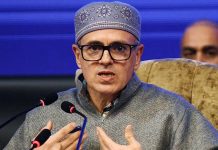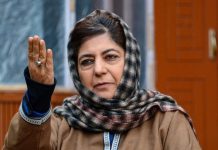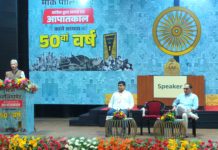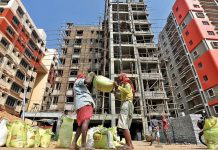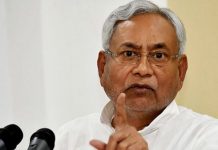Amid Punjab farmers’ ongoing stir at the Punjab-Haryana border for a legal MSP guarantee, and SKM (non-political) leader Jagjit Singh Dallewal’s prolonged hunger strike, the movement underscores enduring farm discontent and evolving protest dynamics. A report by Aayush Goel
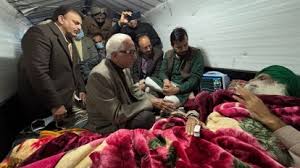
As the dense winter fog grips Punjab, thousands of its farmers are on Punjab-Haryana border fighting for a legal guarantee for Minimum Support Price (MSP) for their crops. This seemingly simple ask has sparked one of the most significant agricultural protests in recent Indian history. The current movement, while reminiscent of the 2020-21 farmers’ protest that successfully led to the repeal of three controversial farm laws, has its unique character. The absence of Haryana farmers, who were crucial allies in the previous protest, has changed the dynamics.
The ongoing farmers’ protests being held under the aegis of the Kisan Mazdoor Morcha (KMM) and the Samyukt Kisan Morcha (non-political) at Khanauri and Shambhu on the Punjab-Haryana border since February 13 last year have so far not created a resonance like the 2020-21 agitation.
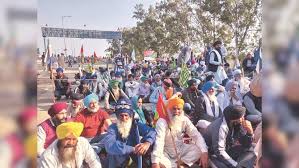
But the continuing hunger strike of SKM’s (non-political) 70-year-old convener Jagjit Singh Dallewal, whose fast-unto-death is nearing 50 days, has kept the Punjab and Central government on the tenterhooks. Dallewal’s hunger strike has drawn national attention and even the Supreme Court intervention. Resham Singh, a 54-year-old farmer from Pahuwind in Punjab’s Tarn Taran district, died by suicide at the protest site on the Shambhu border. The protest site at Khanauri has transformed into a small township, with makeshift kitchens serving langar (community meals), medical camps, and areas where farmers gather to discuss their strategies. Tractors lined up along the highways serve as temporary homes for these agricultural warriors, many of whom have left their fields during the crucial sowing season to participate in the protest.
The Supreme Court’s intervention in the matter, particularly regarding Dallewal’s health, has added another layer to the ongoing saga. The court directed Punjab officials to provide medical aid to the fasting leader, leading to a flurry of activity from the state administration.
However, Dallewal’s response to these efforts remains unchanged. “If the BJP is genuinely concerned about my health,” he stated in a video message, “they should approach Prime Minister Narendra Modi to accept our legitimate demands rather than seeking intervention from the Akal Takht.” The reference to the BJP’s appeal to the Akal Takht, the highest temporal seat of Sikhism, to intervene and make Dallewal end his fast has added a religious dimension to the protest. However, farmer leaders maintain that their movement is purely about agricultural economics and the survival of India’s farming community.
Who is Dallewal?
Born on October 4, 1958, in a farmer-family at Dallewala village in Punjab’s Faridkot district Jagjit Singh Dallewal is the leader of a farmers’ group that is loosely allied with SKM, a coalition of dozens of unions that coordinated the protests in 2020. Dallewal has a Master’s degree in political science but chose farming. An agriculture activist since 1989, ‘sit-ins’ and ‘hunger strikes’ are a hallmark of Dallewal’s way of agitation over the years.
In recent years, he had held hunger strikes in March 2018, January 2019, January 2021, November 2022 and June 2023, all in support of farmers. However, the ongoing fast is his longest. In a letter to Modi, he has written that he is prepared to “sacrifice his life” to stop the deaths of farmers. His fast unto death has become a symbol of farmer’s grit as despite all efforts of the state government and authorities, he has refused to end the fast even as doctors have raised an alarm of possible cardiac arrest. “My life is not important,” Dallewal declared during a recent Kisan Mahapanchayat (farmers’ congregation), his voice weak but determined. “What matters is the future of millions of farmers across India who need guaranteed prices for their crops to survive.” Dallewal transferred his properties to his son, daughter-in-law and grandson, indicating his willingness to sacrifice his life for the cause of the farming community.
What sets this farm stir apart
In terms of demands, not much has changed from earlier protests. The Punjab farmers are pushing for a legal guarantee for the minimum support prices, a loan debt waiver, pensions for both farmers and agricultural labourers, no increase in electricity tariffs, the reinstatement of a land acquisition law, and compensation for families of farmers who died during previous protests. What however has changed is the absence of the majority of farm unions, Haryana farmers and the attitude of the central government towards the protest. The Punjab farmers’ failure to take their Haryana counterparts on board is being attributed to a host of reasons, including their ‘hurried’ “Dilli Chalo” call and the BJP’s surprise return to power in Haryana after the Assembly elections in October last year. The proactive approach of the new Nayab Singh Saini government coupled with schemes like the Bhawantar Bharpayee Yojana, a price deficiency payment initiative, and the state government’s December 2024 decision to procure 24 crops at MSP are being seen as potential reasons for a chunk of farmers from the state staying away from the ongoing protest.
During the protests in 2020, the union government held multiple rounds of talks with the farmers. Top officials, including India’s then agriculture and food ministers, were part of the negotiations. Even in February 2023, union ministers held two rounds of talks with their leaders but failed to achieve a breakthrough. But this time, the government is being cautious to prevent a repeat of what happened in 2020. That year, a key meeting between the then agriculture secretary and farmers’ unions backfired badly, catalyzing the following year-long protest. The core SKM has so far distanced itself from the protest and now with Dallewal’s deteriorating health, the protesting forums have sought a meeting at the protest site. The request came a day after a six-member committee of SKM visited the Khanauri protest site and invited the SKM (Non-Political) and KMM for a meeting on January 15 in Patiala for unity among farmer bodies.
‘MSP no panacea for Punjab farmers’
While the legal MSP regime has been the core demand of farmers since 2020, Punjab BJP chief Sunil Jakhar has questioned the benefits of a legal MSP regime for Punjab farmers and demanded a debate on the issue in the state Assembly. Jakhar has accused local politicians of playing with Dallewal’s life. “MSP guarantee was not a surety of income enhancement, which the farmers of Punjab needed. It will be detrimental to the interests of Punjab.
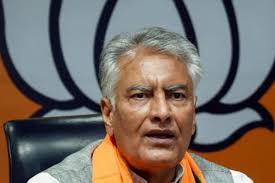
A national-level MSP regime would mean Punjab farmers would need to squander their special advantage under the present system where the entire wheat and paddy stocks are procured at MSP. In the case of a pan-India legal MSP regime, the Centre would be obligated to procure crops from across states and Punjab too would come under the per acre procurement rule, which is not the case today. We should be aware of what we seek because we might just get it and then we might regret it,” said Jakhar. He has asked the AAP-led Punjab Government to clarify why the state was not drafting its agriculture policies after rejecting the Centre’s policy. “Why don’t you have your own policy? After all, agriculture is a state subject. The farmers of Punjab need to ask themselves what is in their best interests. Whose battle are we fighting and why?”


